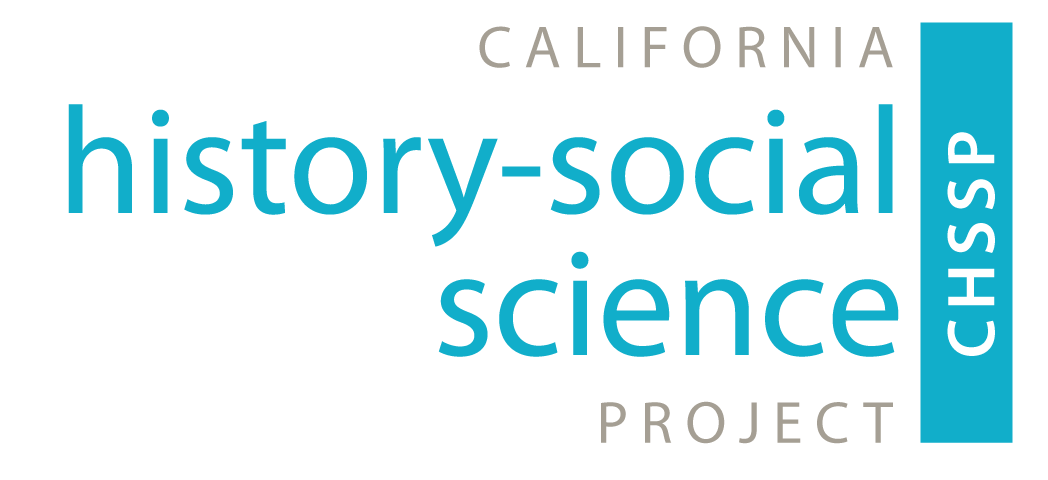In what ways can developing students media literacy lead to civic engagement?
These four lessons* were developed to progressively build secondary students’ media literacy and civic reasoning skills so they can make informed and reasonable judgments about the media they consume, curate, and produce as digital citizens. The lessons are designed to be used together. Some concepts and vocabulary are mentioned in early lessons before students investigate those concepts in more depth in subsequent lessons. Lessons can also be used as stand-alone lessons and activities or mixed as you, the teacher, sees fit. Taken together, all lessons help students build the knowledge, skills, and dispositions to critically engage in civic reasoning and discourse as media consumers, curators and producers.
Click here for Unit Overview
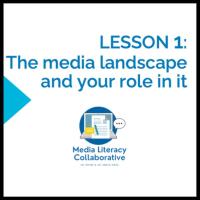
What is my role in the media landscape?
In this lesson, students will introduce and name challenges and opportunities in the current media landscape. They will also track and reflect upon their media use. Lastly, they will be introduced to concepts, purposes, and connections regarding media literacy, civic engagement & news.
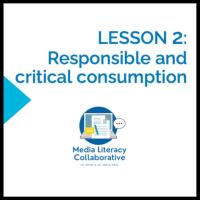
What is responsible and critical media consumption?
In this lesson, students will use lateral reading to determine if sources of information are reliable, credible, or trustworthy. They will consider domain knowledge and expertise when evaluating sources and understand the purpose and motivations of different media sources.
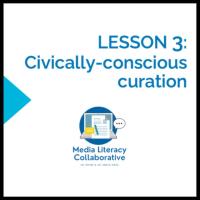
What does it mean to be a civically-conscious media curator?
In this lesson, students will understand the concept of curation and discuss how they make choices about their media consumption and sharing. They will learn about algorithms and how this impacts the media with which they engage. Students will also discuss and decide upon the criteria they will use to support critical curation.
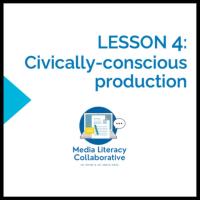
How can I be a civically-conscious media producer?
In this lessons, students will produce media that covers a civic topic in an accurate and balanced way. They will develop countertexts/ counternarratives about an issue in their community.
